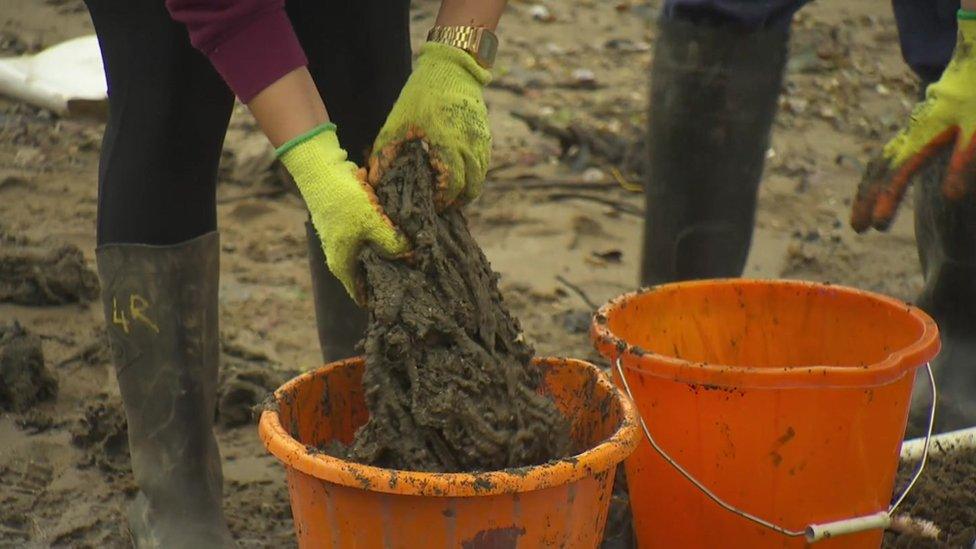'Pretty gross' wet wipe island cleared from Thames
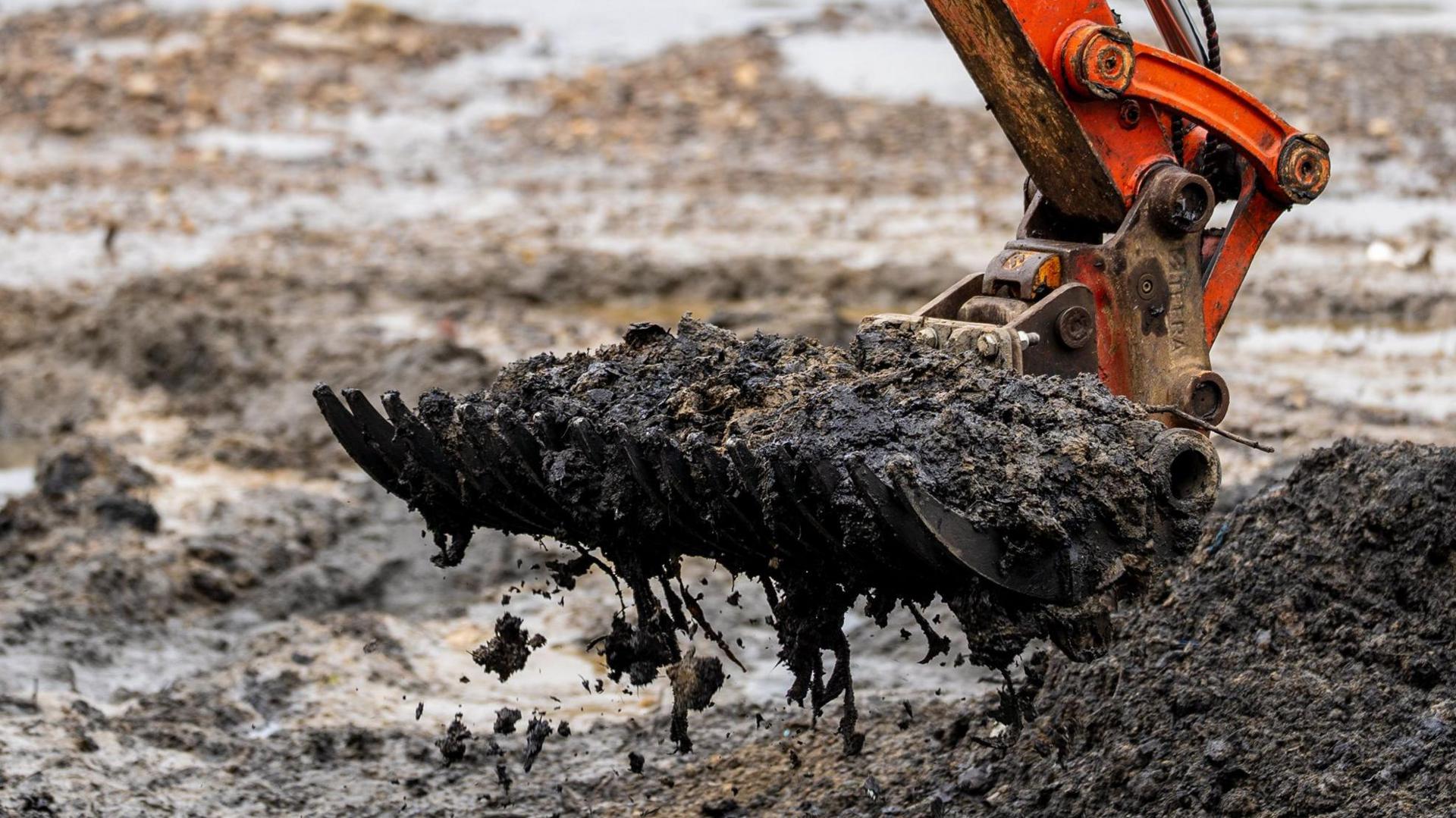
Congealed wet wipes were potentially affecting the river's wildlife
- Published
An attempt to clear "wet wipe island" from the banks of the River Thames has been described as "pretty gross" but worth the effort as it nears completion, those behind the project have said.
Congealed rubbish equivalent to around five million wet wipes has been removed along a 820ft (250m) stretch of the foreshore near Hammersmith Bridge in west London.
The two eight-tonne excavators used a "rake and shake" method to scoop out wet wipes from the natural sediment and riverbed. Towels, scarves, trousers, a car engine timing belt and a set of false teeth were also dug up.
The "island" was about the size of two tennis courts and more than three feet (1m) deep in places.
Environment group Thames21 and its volunteers campaigned for its removal for years while monitoring the build-up of wet wipes, and researching how those containing plastic can degrade the environment.
The Port of London Authority led the three-week project, which began on 11 August, in collaboration with environmental charity Thames21 and Thames Water.
On Thursday, they announced that 114 tonnes of rubbish have been cleared from the river and taken away in skips to landfill, including almost 200 cubic metres of wet wipes containing plastics.
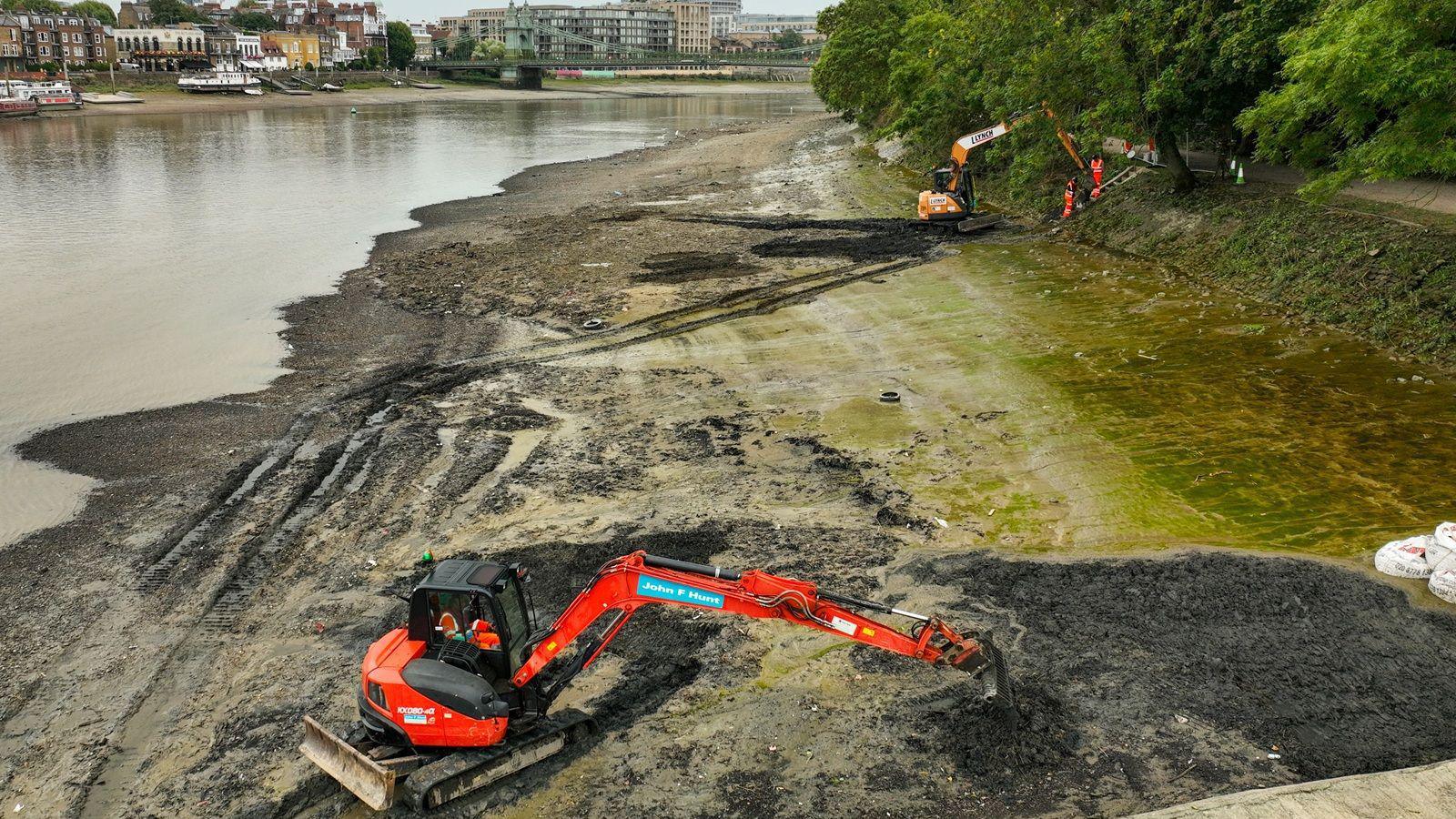
The project to clear "wet wipe island" began in August
Grace Rawnsley, Port of London Authority's director of sustainability, said: "After months of planning and hard work, we're so pleased to have finally been able to clear this stretch of the Thames.
"The reaction of local communities - and of people across the country and beyond - has been really encouraging but also slightly incredulous that this work was needed in the first place.
"As a business which reinvests all the money we make back into the river and its communities, we are proud to have been able to drive forward this first-of-its-kind project and, while at times the work was pretty gross, it was well worth it to help clean the river."
John Sullivan, Thames Water's head of Tideway Integration Group, called the estimate of five million wet wipes "staggering".
"This 'island' was a direct result of people flushing away wet wipes containing plastic and shows the damage that is caused by putting the wrong things down your toilet," he said.
"Blockages caused by wipes are a leading cause of pollution and we remove an estimated 3.8 billion wipes from our network each year."
Chris Coode, chief executive at Thames21, said the project was "a crucial step towards protecting the health of the River Thames and its wildlife".
He added: "Thames21 and its dedicated volunteers have been building evidence for eight years.
"We want to give our volunteers a huge shout-out for their persistence. This has been a massive piece of work."
The government has published draft legislation to ban wet wipes that contain plastic.
Listen to the best of BBC Radio London on Sounds and follow BBC London on Facebook, external, X, external and Instagram, external. Send your story ideas to hello.bbclondon@bbc.co.uk, external
Related topics
- Published12 May 2024
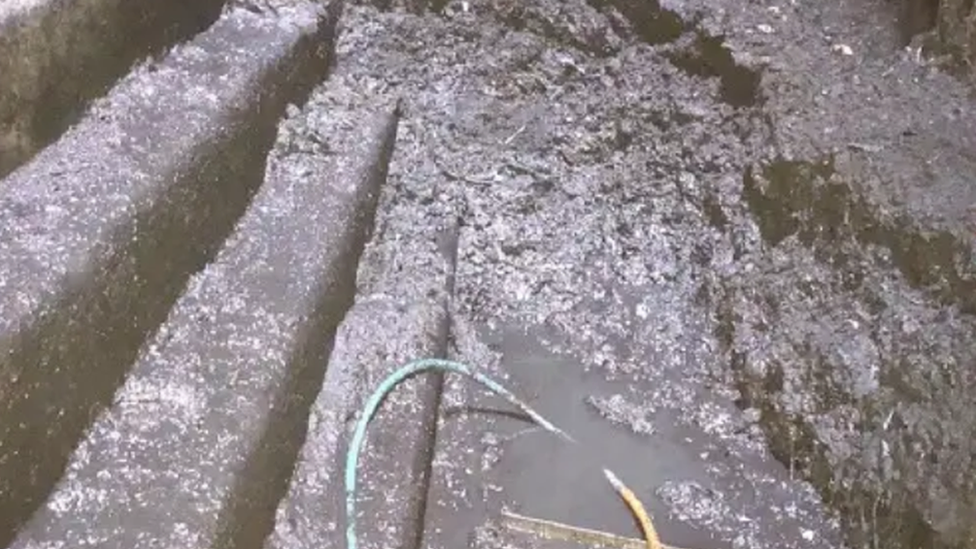
- Published11 August
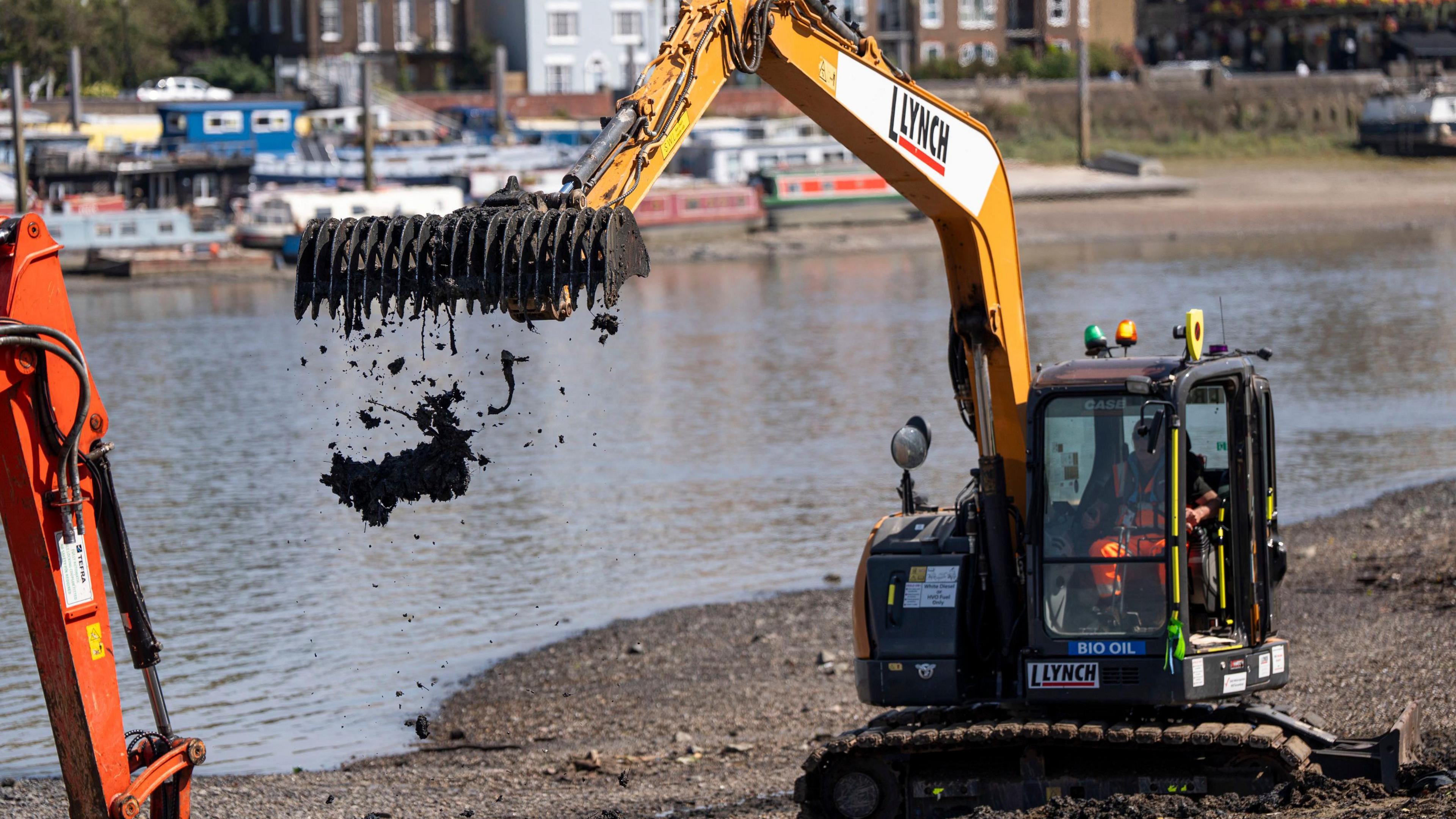
- Published1 October 2023
